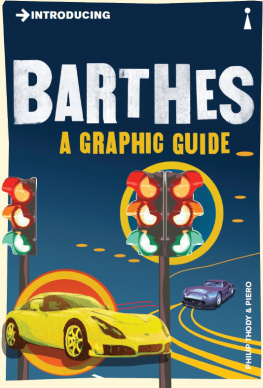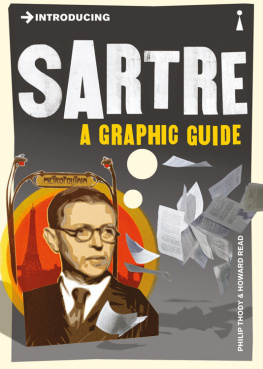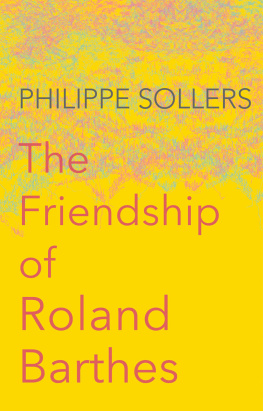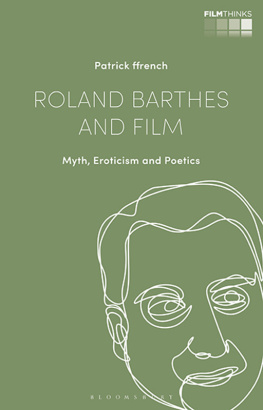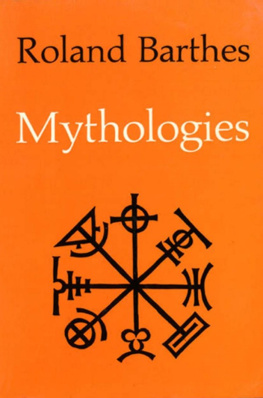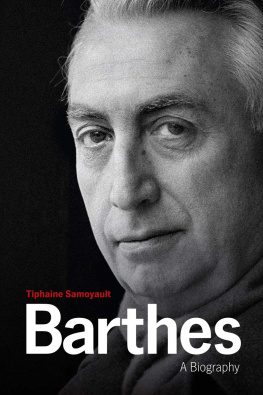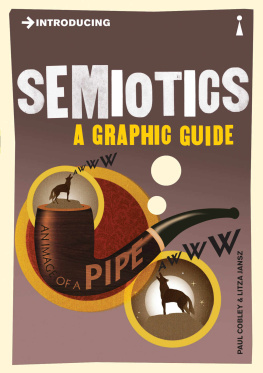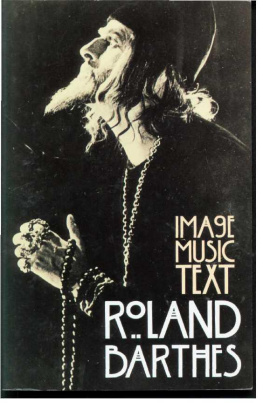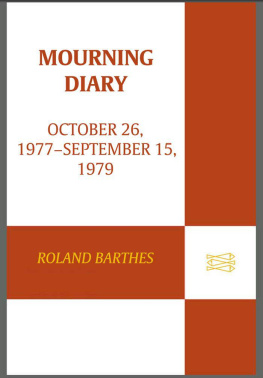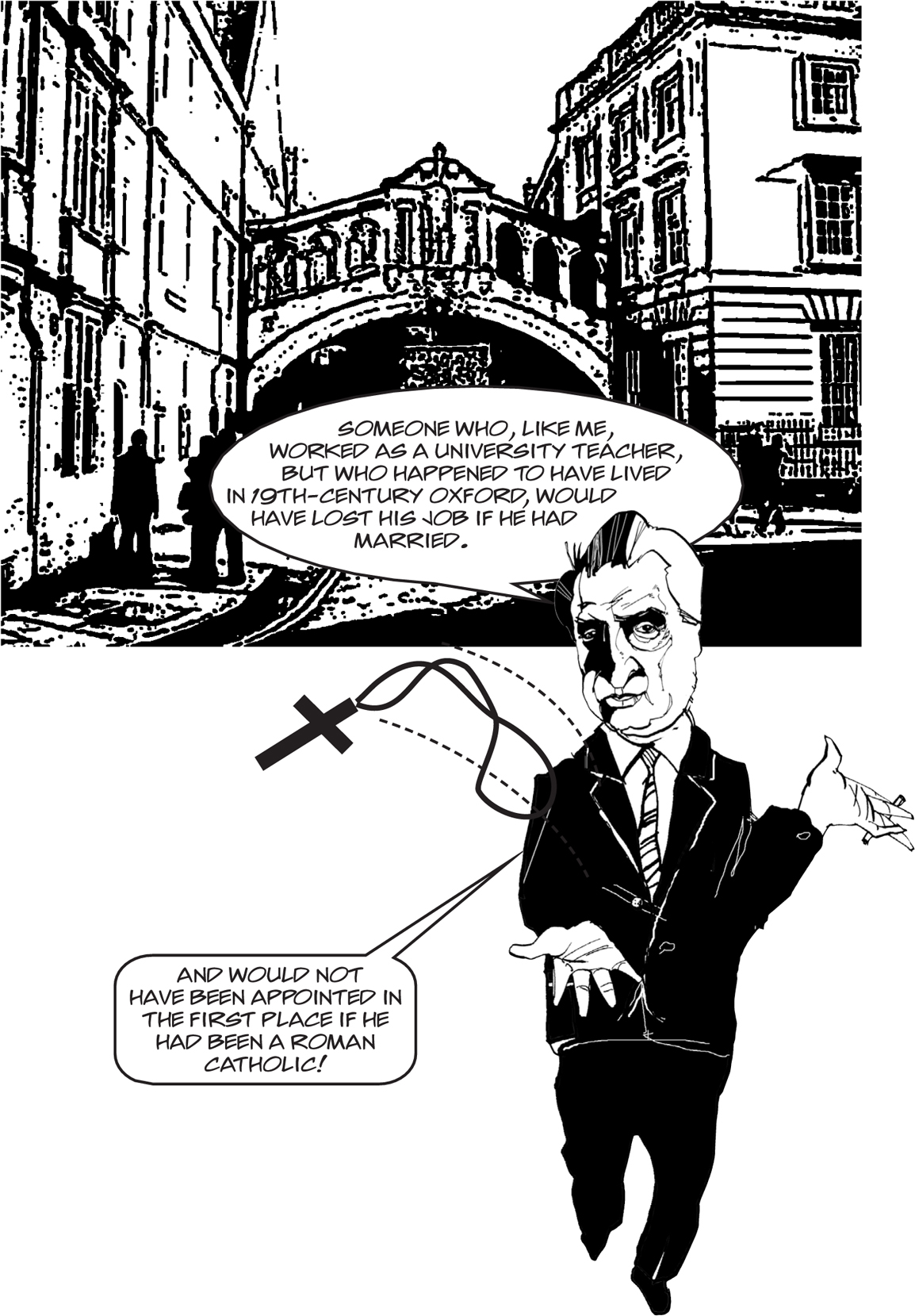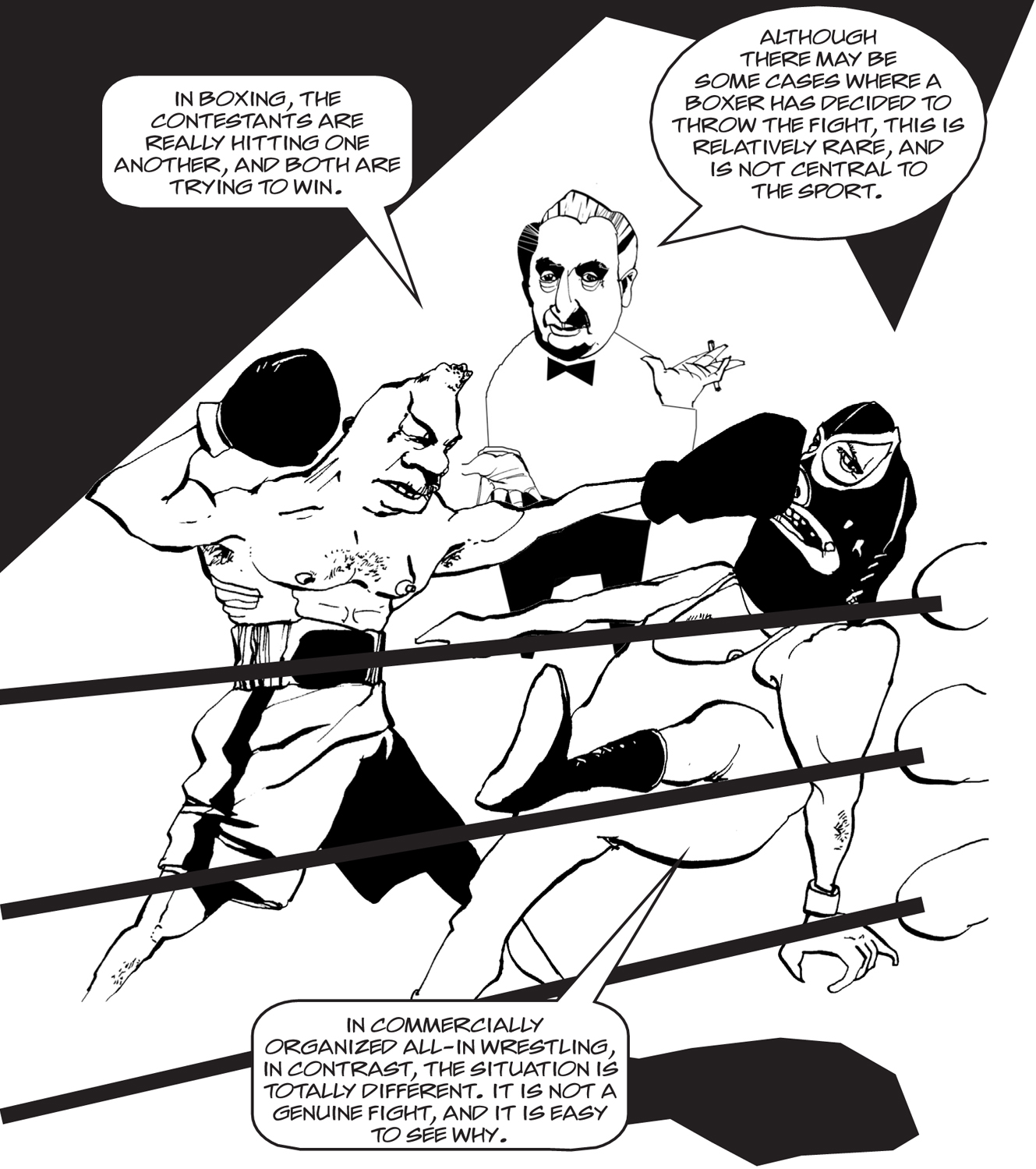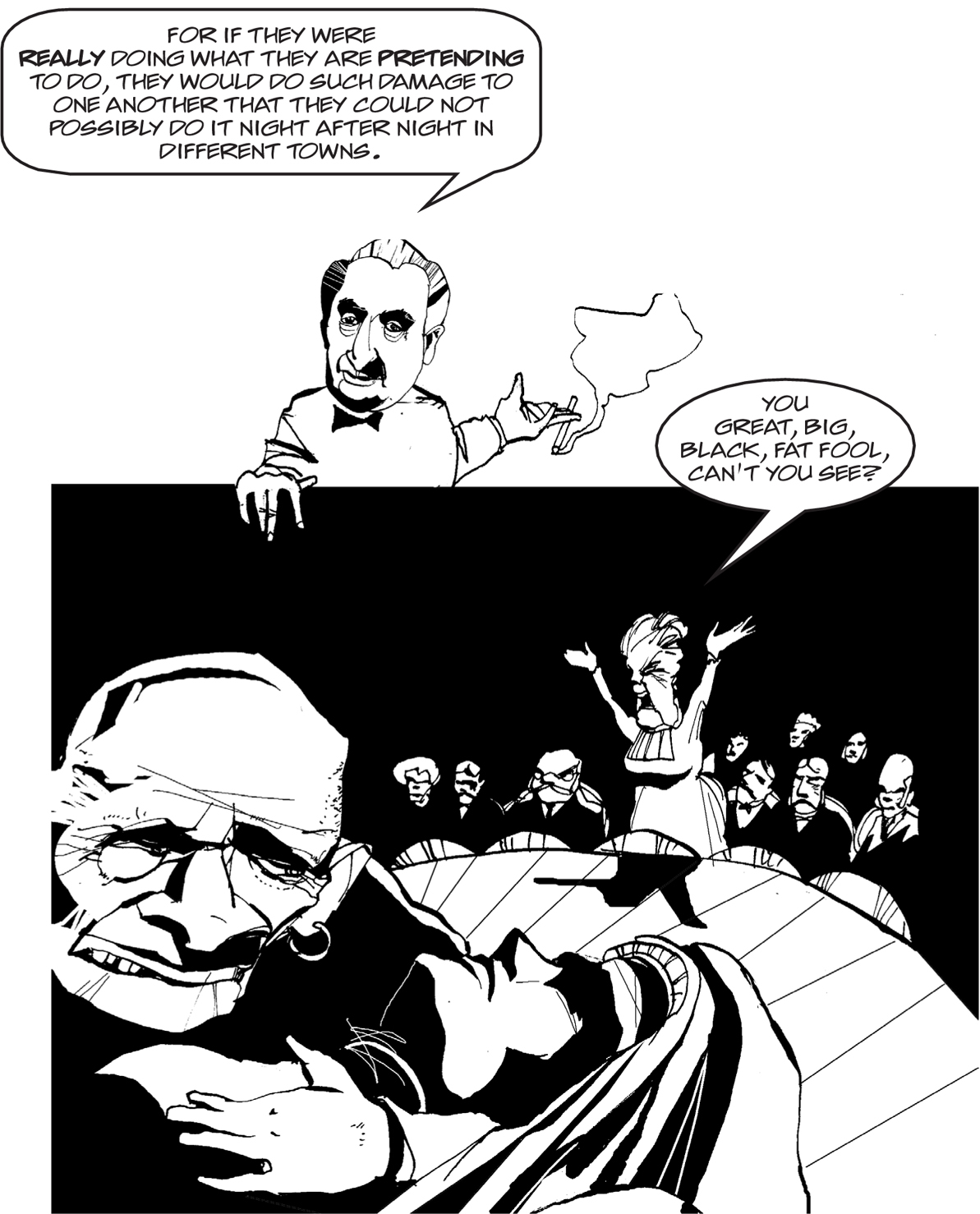Contents
Published by Icon Books Ltd, Omnibus Business Centre, 3941 North Road, London N7 9DP
Email:
www.introducingbooks.com
ISBN: 978-184831-204-3
Text copyright 2012 Icon Books Ltd
Illustrations copyright 2012 Icon Books Ltd
The author and illustrator has asserted their moral rights
Originating editor: Richard Appignanesi
No part of this book may be reproduced in any form, or by any means, without prior permission in writing from the publisher.
I Have a Question to Ask ...
In 1975, when he was 62, Roland Barthes asked ...
WHO DOES NOT FEEL HOW NATURAL IT IS IN FRANCE TO BE CATHOLIC, MARRIED, AND ACADEMICALLY WELL QUALIFIED?
Since he was himself a Protestant, a homosexual and had never taken a doctorate, his question was obviously an ironic and personal comment on himself.
More importantly, however, it underlined two of the main concerns running through the whole of his work: the need to distinguish between nature and culture; and the care we need to take in the correct use of words.
Mythologies
For Barthes, one of the greatest mistakes modern society makes is to think that its institutions and intellectual habits are good because they are in keeping with what is popularly called the nature of things.
The second mistake is to see language as a natural phenomenon rather than a set of conventional signs. What Barthes wanted to do, as he said when discussing his aims in his best-known book, Mythologies (1957), was to destroy the idea that signs are natural (battre en brche la naturalit du signe).
FOR THERE IS, AS THE OBVIOUS IRONY OF BARTHES QUESTION REMINDS US, NOTHING NATURAL ABOUT ONES RELIGION, ONES MARITAL STATUS OR ONES ACADEMIC ACHIEVEMENTS.
THEY ARE SOCIAL CONSTRUCTS, GIVEN TO US BY OUR RELATIONSHIP WITH OTHER HUMAN BEINGS, AND MEANINGFUL ONLY IN THE SOCIETY IN WHICH WE HAPPEN TO LIVE.
There is nothing natural about being a married Catholic with a lot of university degrees, and probably a lot of children as well. It is merely a statistical accident, a way of conforming which we owe to our birth and upbringing.
SOMEONE WHO, LIKE ME, WORKED AS A UNIVERSITY TEACHER, BUT WHO HAPPENED TO HAVE LIVED IN 19TH-CENTURY OXFORD, WOULD HAVE LOST HIS JOB IF HE HAD MARRIED.
AND WOULD NOT HAVE BEEN APPOINTED IN THE FIRST PLACE IF HE HAD BEEN A ROMAN CATHOLIC!
Its Natural
It is also a mistake, and a very frequent one, to use the word natural when we mean either socially acceptable, morally desirable or aesthetically pleasing or, quite frequently, all three. The French radio station EUROPE 1 did this when it issued motorists with a sticker to put into the back of their car with an advertising slogan on it which read EUROPE 1, cest naturel.
ITS CERTAINLY NATURAL TO EAT, TO SLEEP, TO MAKE LOVE AND TO USE LANGUAGE.
BUT WHAT WE EAT, WHEN WE SLEEP, HOW WE MAKE LOVE AND WHAT KIND OF WORDS WE USE VARIES ACCORDING TO THE SOCIETY AND CLASS TO WHICH WE BELONG.
It is no more natural to listen to one radio station rather than another, just as it is no more natural to eat potatoes rather than spaghetti, to speak German rather than Hindi, or to prefer the theatre to the cinema.
It may well make life easier for us, if we live in a society like that of middle-class France, if we get married in church and work hard to pass examinations. But there is nothing natural about it.
IF I HAD BEEN BORN IN THE TROBRIAND ISLANDS BEFORE THE BEGINNING OF THE 20TH CENTURY, IT WOULD HAVE BEEN EQUALLY NATURAL FOR ME TO HAVE HAD LOTS OF SEXUAL PARTNERS AND NEVER TO HAVE LEARNED TO READ OR WRITE.
All-In Wrestling
Most of the essays in Mythologies (1957) first appeared in newspaper form, many of them in the wartime Resistance publication Combat, whose first editor had been Albert Camus (191360). Although the essay Le monde o lon catche (The world of all-in wrestling) was too long for a newspaper article, it does fit in with this aspect of Barthes work by talking about a popular, non-intellectual activity.
IT IS PROBABLE THAT IN THE FRANCE OF THE 1950S, MORE PEOPLE ATTENDED ALL-IN WRESTLING MATCHES THAN WERE IN THE HABIT OF READING NOVELS OR GOING TO THE THEATRE.
Barthes essay is the best introduction to what he also thought went on in the mind of the reader of fiction or the play-goer.
Barthes points out, at the very beginning, that there is a fundamental difference between all-in wrestling and a genuine sport such as boxing or tennis.
IN BOXING, THE CONTESTANTS ARE REALLY HITTING ONE ANOTHER, AND BOTH ARE TRYING TO WIN.
ALTHOUGH THERE MAY BE SOME CASES WHERE A BOXER HAS DECIDED TO THROW THE FIGHT, THIS IS RELATIVELY RARE, AND IS NOT CENTRAL TO THE SPORT.
IN COMMERCIALLY ORGANIZED ALL-IN WRESTLING, IN CONTRAST, THE SITUATION IS TOTALLY DIFFERENT. IT IS NOT A GENUINE FIGHT, AND IT IS EASY TO SEE WHY.
Whereas professional boxers fight, at the outside, once every three months, all-in wrestlers give several performances a week. They make no attempt to hide this fact, and it is quite easy to follow them round as they go from town to town to give their performance ...
Performance
And the word performance is the only way to describe what they do.
Moreover, Barthes argues, and this point is central to his argument, the audience itself knows it is all pretence.
Nobody is fooled; just as nobody was but the naive Victorian lady who leapt to her feet and shouted:
FOR IF THEY WERE REALLY DOING WHAT THEY ARE PRETENDING TO DO, THEY WOULD DO SUCH DAMAGE TO ONE ANOTHER THAT THEY COULD NOT POSSIBLY DO IT NIGHT AFTER NIGHT IN DIFFERENT TOWNS.
YOU GREAT, BIG, BLACK, FAT FOOL, CANT YOU SEE?
... when Othello was being driven into torments of jealousy by Iago.
This is why Barthes argues that the attitude of the spectator at an all-in wrestling match is so much like that of the reader of a novel or the spectator at a play. We all know, if we think about it for a moment, that there never was a David Copperfield or an Emma Bovary, and that it is all made up.

